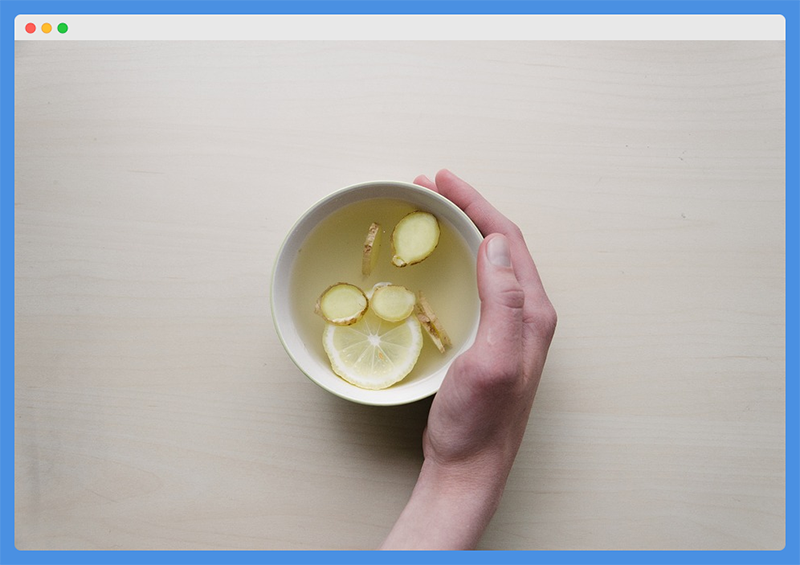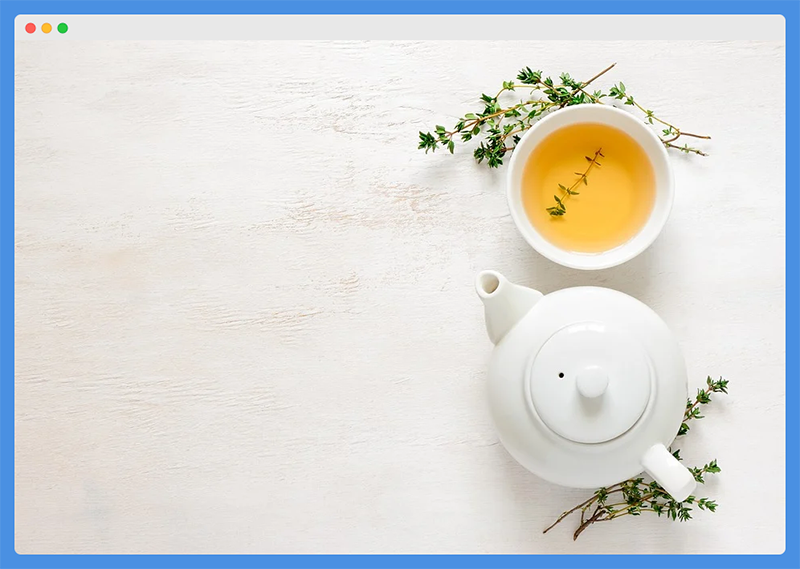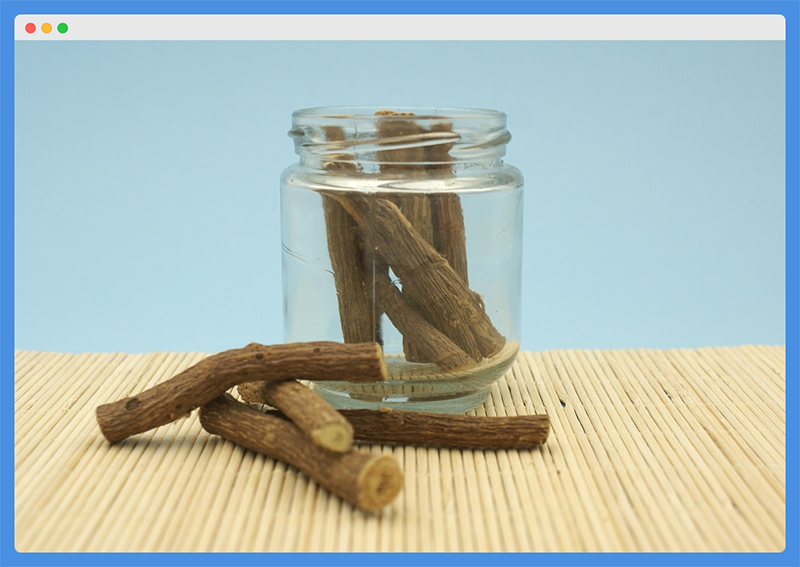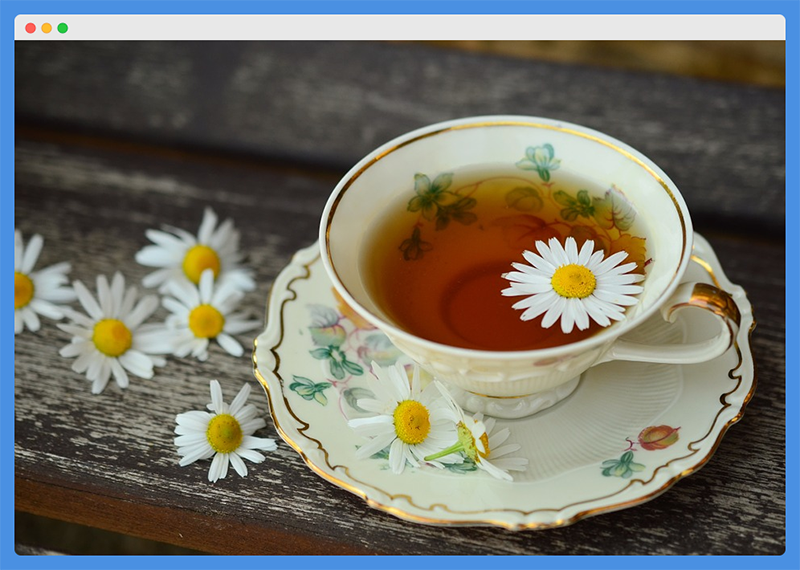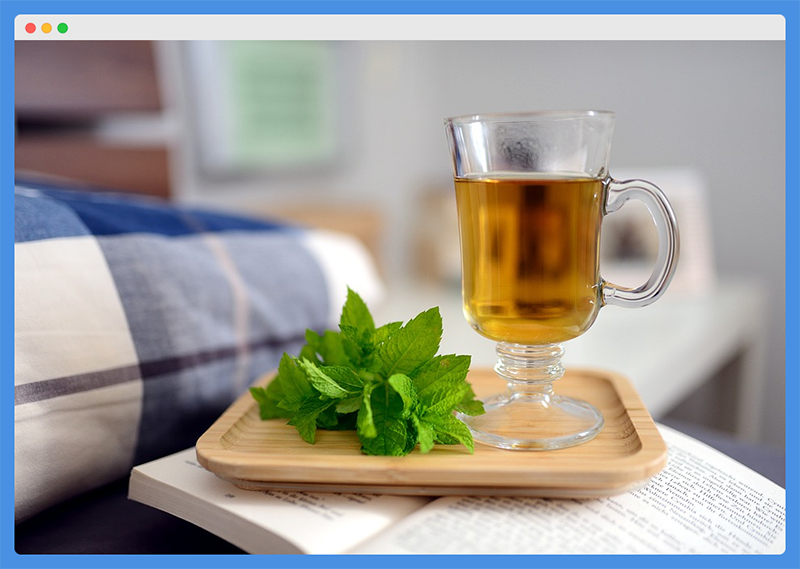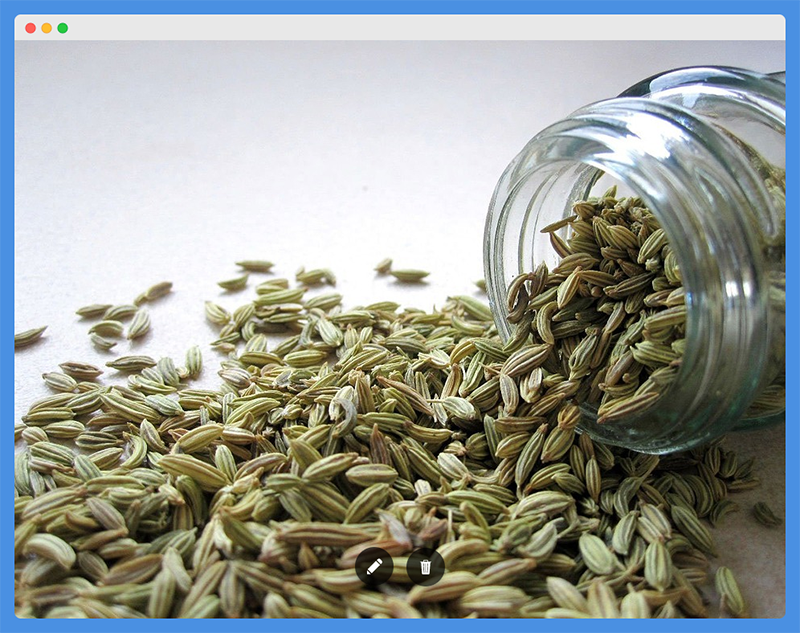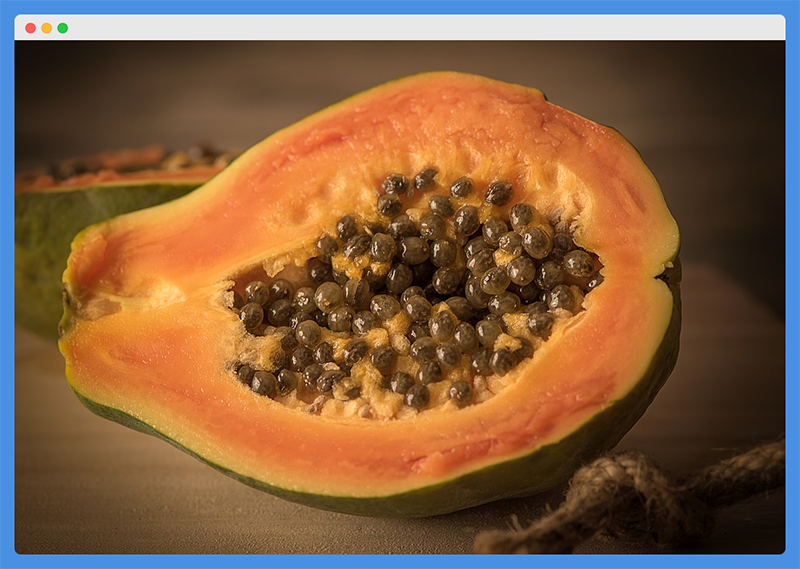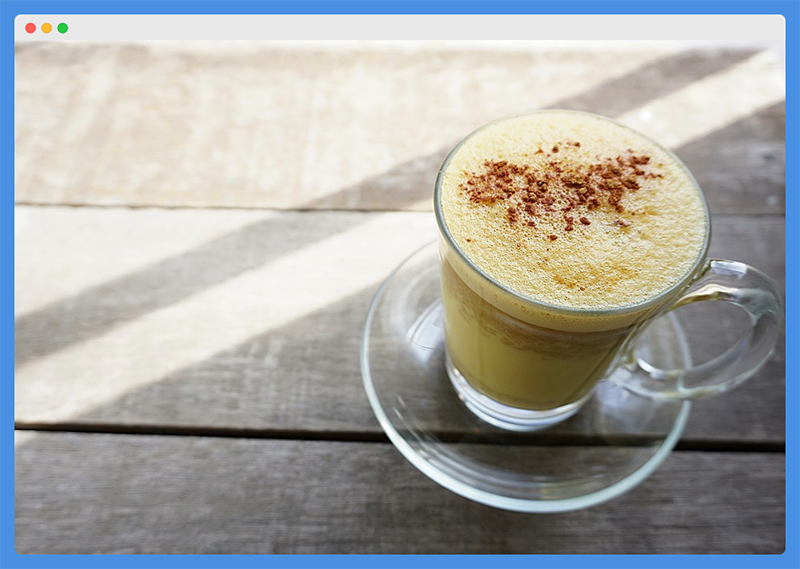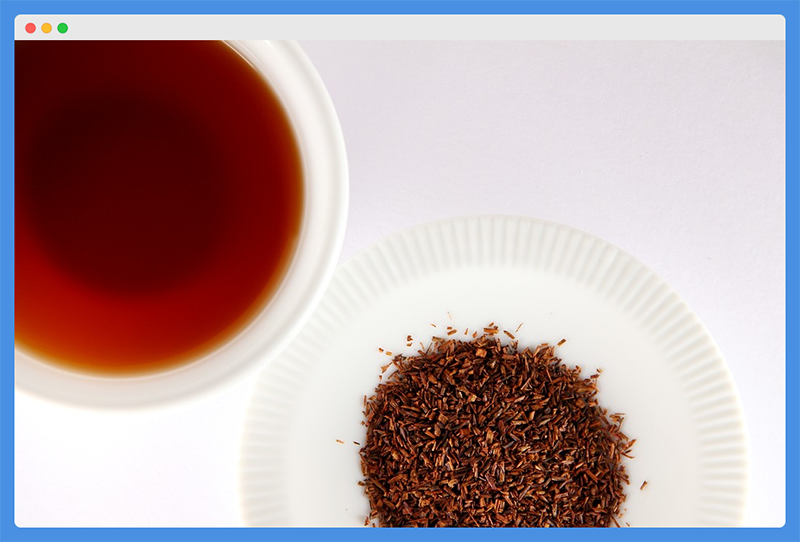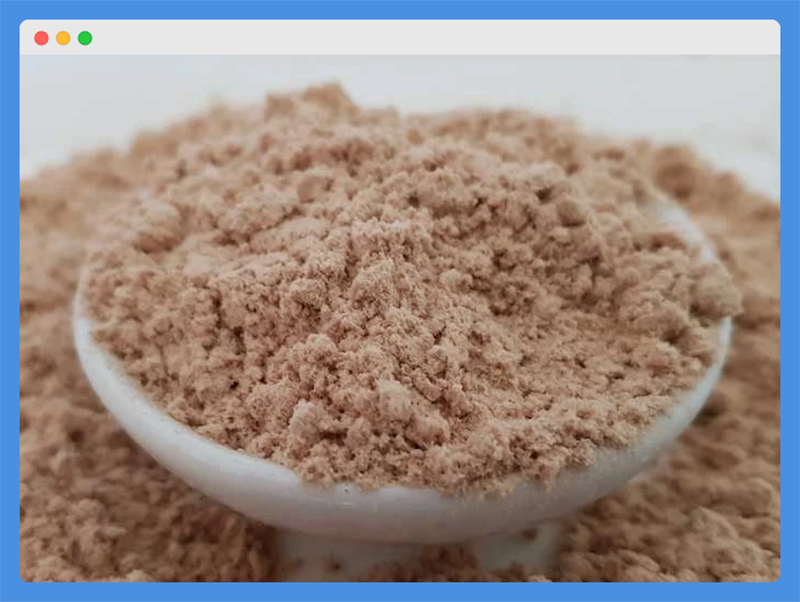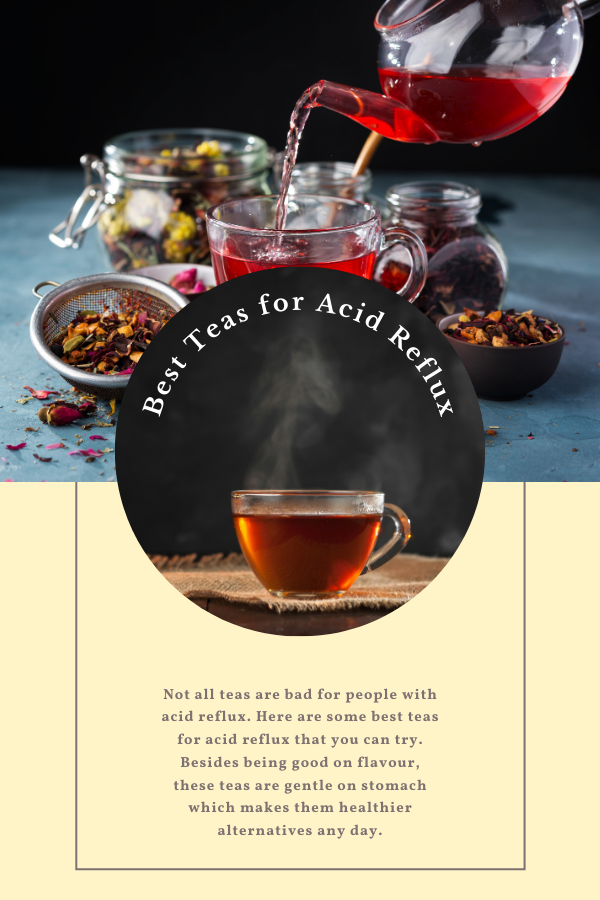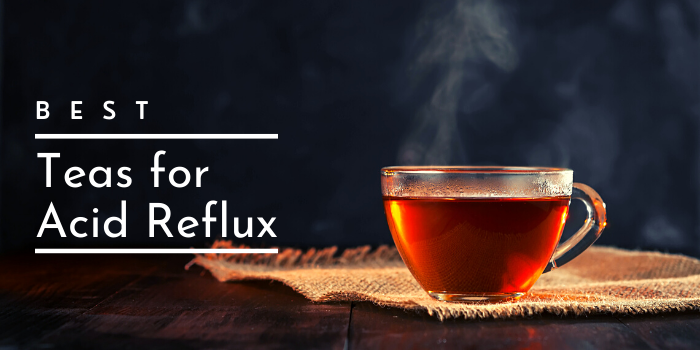
If you suffer from acid reflux, you probably know not to take foods with properties that can cause it to flare up like spicy foods, fried fare, tomato sauce, or caffeinated drinks.
Saying no to such food or drink, especially during the festive season, isn’t much fun.
Fortunately, you can make healthy food and drink choices that can coat your stomach with a protective barrier, cut down on, and combat symptoms of uncomfortable acid reflux.
Such foods include yogurt, bananas, ginger, watermelon, oatmeal, and green vegetables like asparagus, spinach, Brussels sprouts, and kale.
Besides these foods, you can also make a soothing tea to help calm acid reflux. We’ve put together a list of the 10 best teas for acid reflux that are worth adding to your menu.
Best Teas For Acid Reflux
1. Ginger Tea
Ginger is an old and well-known herbal remedy and aid for digestive issues, which is why it’s one of the main ingredients in digestive herbal formulas.
The root of the ginger plant has been used for centuries for heartburn, gas, bloating, and nausea, but also helps reduce the production of stomach acid.
Ginger tea boasts natural anti-inflammatory properties thanks to ingredients that work to reduce irritation and swelling that causes stomach acid entering the esophagus.
These ingredients are shogaol and gingerol, which offer a mild spicy flavor that you can balance with some honey.
There’s a whole slew of ginger teas on the market, but for a person with acid reflux, the best is caffeine-free ginger tea with a dash of honey to sweeten it.
2. Green Tea
Green tea is made from the tea plant leaves and is globally acclaimed for its potential health benefits. There are several green teas including matcha, gunpowder, and Sencha, all of which vary in taste but with a generally mellow flavor.
Not only are green teas used in smoothies and other tea-flavored recipes, but taking green tea as it is with its softer and sweeter taste makes it a great alternative to caffeinated black tea.
Green tea has less caffeine but you can brew it weaker, switch to loose tea from tea bags, or try decaf tea to manage acid reflux.
The anti-inflammatory and antioxidant properties in green tea provide relief from burning sensations while improving the digestive system.
Plus, green tea helps restrict the backward movement of digestive acids, establish proper contraction of the lower esophageal sphincter (LES), and reverse the effect of caffeine.
3. Licorice Root Tea
The Licorice root is another old herbal remedy that stems from the root of the licorice plant, native to Southern Europe and Western Asia.
Licorice is used as a flavoring agent, but also as a medicinal treatment because of its ability to increase the mucous coating of the esophageal lining and resist the irritation caused by stomach acid.
As a tea, the licorice root is a powerful stomach acid neutralizer with soothing properties that can calm irritation that causes cramping and stomach upset.
While the tea tastes more of black licorice, you can mellow out the strong flavor by adding a little honey or agave.
4. Chamomile Tea
Chamomile tea is also known for soothing properties that calm and soothe the nervous system and help combat acid reflux.
A cup of chamomile tea could soothe your digestive tract, as it works to decrease inflammation and relax your muscles. However, if you are allergic to ragweed, it’s advisable not to use chamomile.
The tea tastes great with a flavor similar to crisp green apples and is an ideal replacement for many fruit juices.
5. Peppermint Tea
Peppermint tea is made from the herb’s leaves, which contain antioxidants, menthol, limonene, and menthone among other essential oils.
The menthol oil gives peppermint the minty scent and cooling properties, but you can also derive several health benefits from the tea.
Some of these health benefits include relieving digestive symptoms like inflammation, acid reflux, bloating, gas, and indigestion.
In addition, peppermint relaxes the digestive system, prevents smooth muscles from contracting, and could ease the pain and spasms in your gut.
6. Fennel Tea
Fennel has been used all over the world for centuries as a digestive aid, which is rich in vitamins and minerals.
Thanks to its Anethole compound, fennel is able to relax the stomach, soothe inflammation, relax muscles, reduce acid reflux in the long run, and improve digestion.
Fennel tea is easily made by steeping crushed fennel seeds in boiling water and taking sips of the tea after a meal.
7. Papaya Tea
Papaya is a healthy tropical fruit loaded with antioxidants that can fight disease and reduce inflammation.
The papaya leaf is the main part of the plant that’s often consumed as a juice, extract or tea, and has some symptom-treating properties.
Papaya leaf tea also helps reduce inflammation, improve blood sugar control, and even supports your skin and hair health.
The tea breaks down tough foods in your body to improve digestion thanks to the high concentration of papain, which also accelerates digestion after a hearty meal.
8. Turmeric Tea
Turmeric is a commonly used spice in curries and sauces, whose root is used not just because it contains medicinal properties, but also for its antioxidant and anti-inflammatory properties.
Turmeric tea is one of the most popular ways of consuming the spice and reaping several health benefits from the turmeric root.
Some of the benefits include appetite stimulation, digestive health, and anti-fungal and detoxifying properties.
Turmeric tea stimulates bile and digestive juice flow while promoting enzymes for detoxification in the liver. You can ground the turmeric root’s stems or rhizomes into a powder and take it as a tea in order to treat acid reflux.
However, there are some contraindications as some people may find that turmeric makes their acid reflux worse, most probably owing to the root’s peppery qualities.
Not only that, but if you’re taking blood-thinning medications, it’s not advisable to take turmeric as it’s a natural blood thinner, shouldn’t be taken for people with gallbladder issues, and also could lower blood sugar in people with diabetes.
9. Rooibos Tea
Redbush tea, also known as Rooibos tea is a popular, delicious, and healthy beverage consumed in southern Africa, but is also a beloved drink globally.
The flavorful, caffeine-free tea is a great alternative to black and green tea and is known for its potential health benefits derived from its antioxidants.
Rooibos is derived from the leaves of the Aspalathus linearis shrub found on South Africa’s western coast. The tea is made using fermented leaves, which then turn into a red-brown color.
The tea is then consumed like black tea, but some people prefer to add sugar and milk.
The tea is a natural beverage as it has no caffeine, additives, colors, or preservatives making it one of the best teas for acid reflux.
In addition, Rooibos tea aids in health problems like headache, irritability, insomnia, hypertension, nervous tension, stomach cramping, and colic in infants.
Besides being a great thirst quencher, Rooibos tea is an excellent beverage for children and active people, without necessarily adding sweeteners or sugar.
10. Slippery Elm
Slippery Elm, also known as Red Elm, is a tree natively found in North America, whose inner bark contains mucilage, a substance with medicinal properties.
Slippery Elm tea may be a good option if you want to add something more to your treatment regimen, as it’s believed to coat the stomach and esophagus to relieve acid reflux discomfort.
The mucilage in the Slippery Elm’s inner bark can coat different body parts and provide relief for acid reflux and other conditions, including inflamed tissue.
Plus, the gel can stimulate the intestines to produce tissue, which helps protect against extra acidity and ulcers.
Native Americans used Slippery Elms for hundreds of years to treat stomach issues and other ailments. In fact, a 2010 study confirmed that it can improve constipation-dominant irritable bowel syndrome as part of a herbal supplement.
Slippery Elm is available in powder form, capsules, or lozenges. You can mix the powdered bark with tea or water, and add sugar or honey to make it more palatable.
However, if you’re unsure about using Slippery Elm as a tea, check with your physician to get the correct dosage.
Most people can take it without side effects, but you need to be cautious when taking it alongside other medications or supplements as the content may vary.
Wrapping Up
Changing your lifestyle and diet may be enough to keep acid reflux in check.
Herbal tea is a great way to help your body treat acid reflux and associated symptoms naturally because there are fewer side effects, making it a little less difficult to deal with the discomfort.
While these 10 teas for acid reflux may help reduce acidity or relieve the acid reflux and related discomfort, it’s important to seek medical attention in case of severe acid reflux, which may over time injure your esophagus and lead to complications.
Pay close attention to what you consume to keep acid reflux at bay and avoid aggravating symptoms, and then grab a cup of one of these best teas today to start feeling better, naturally.
